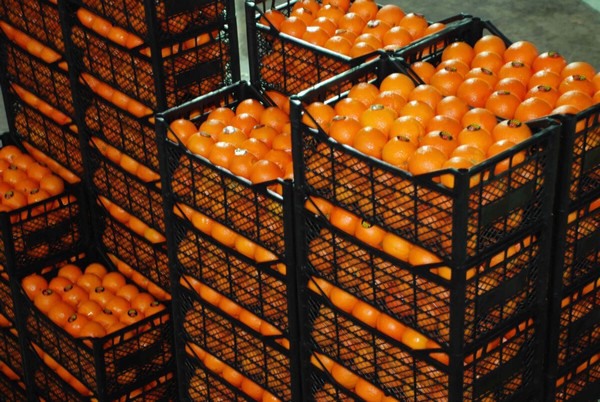A study prepared by La Unió de Llauradors reveals that the RASFF European alert system issued 478 alerts for fruits and vegetables exported to the EU from Turkey between May of last year to August 9 of this year because they had pesticide residues of products banned in the EU, including methyl chlorpyrifos and chlorpyrifos, or because the residues exceeded the MRLs.
Sweet peppers stand out with 199 notifications, followed by mandarins with 60, lemons with 38, grapefruits with 33, oranges with 27, and pomegranates with 10 detections of pesticide residues. In total, these products accounted for 367 notifications, which account for 76.78% of the total notifications for the analyzed period.

The Commission's Implementing Regulation (EU) 2020/625 of May 6, 2020, which entered into force on May 26, 2020, states that the temporary increase in official controls and emergency measures that regulate the entry of certain goods from certain third countries -like Turkish products that coincide with Valencian productions-, had to be intensified in those countries for certain productions, such as citrus fruits (except lemons) or pomegranates in the face of new risks to human health due to possible contamination by pesticide residues.
Thus, the frequency of physical and identity checks of these productions introduced into the European Union from Turkey was modified as follows:
Tangerines, including Tangerines and Satsumas; clementines, Wilkings, and similar citrus hybrids, fresh (fresh or dry food). Pesticide residue risk: 5%.
Oranges (fresh or dry food). Pesticide residue risk: 10%.
(Fresh or chilled) Pomegranates. Pesticide residue risk: 5%.
Sweet peppers (Capsicum annuum) (fresh, chilled, or frozen). Pesticide residue risk: 10%.
La Unió considers that lemons should be included in these controls. They also stated that the result of this increase of controls has not been what they expected and that the content of the Regulation of Execution 2020/625 has not deterred Turkey from using certain pesticides that may put human health at risk.
Therefore, La Unió de Llauradors has asked the Minister of Agriculture, Luis Planas, to initiate the relevant procedures and procedures before the European Commission to modify the Implementing Regulation (EU) 2020/625 so that there is an increase in official controls on these productions from Turkey.
For more information:
La Unió de Llauradors 
[email protected]
www.launio.org










